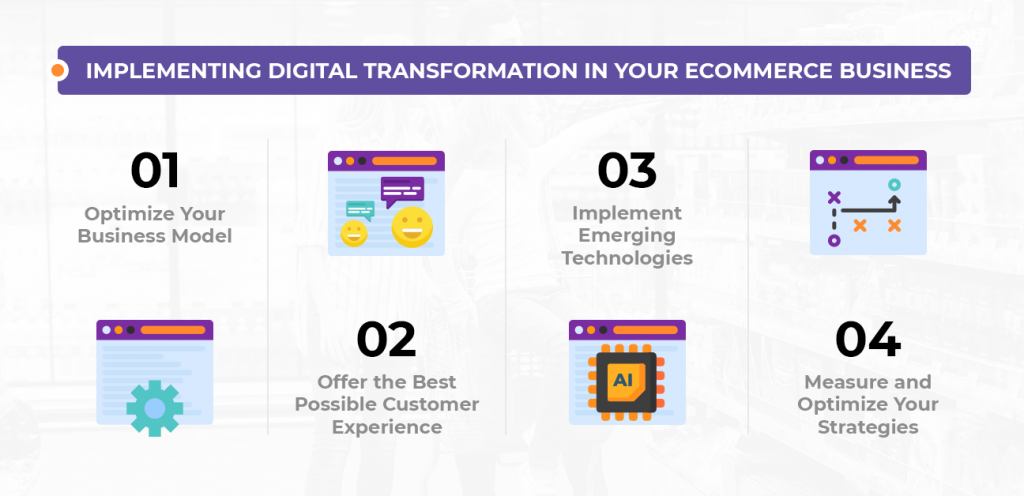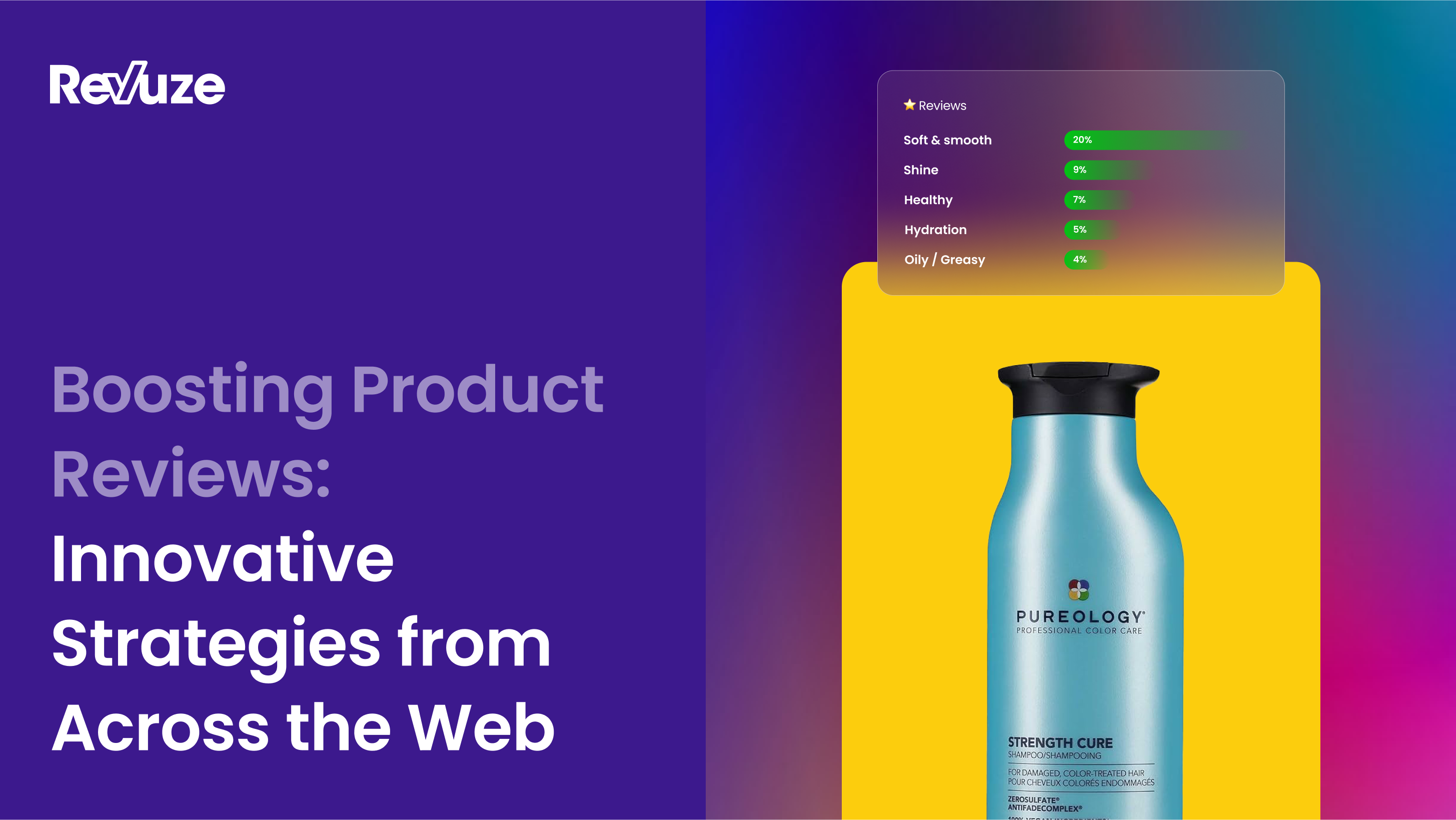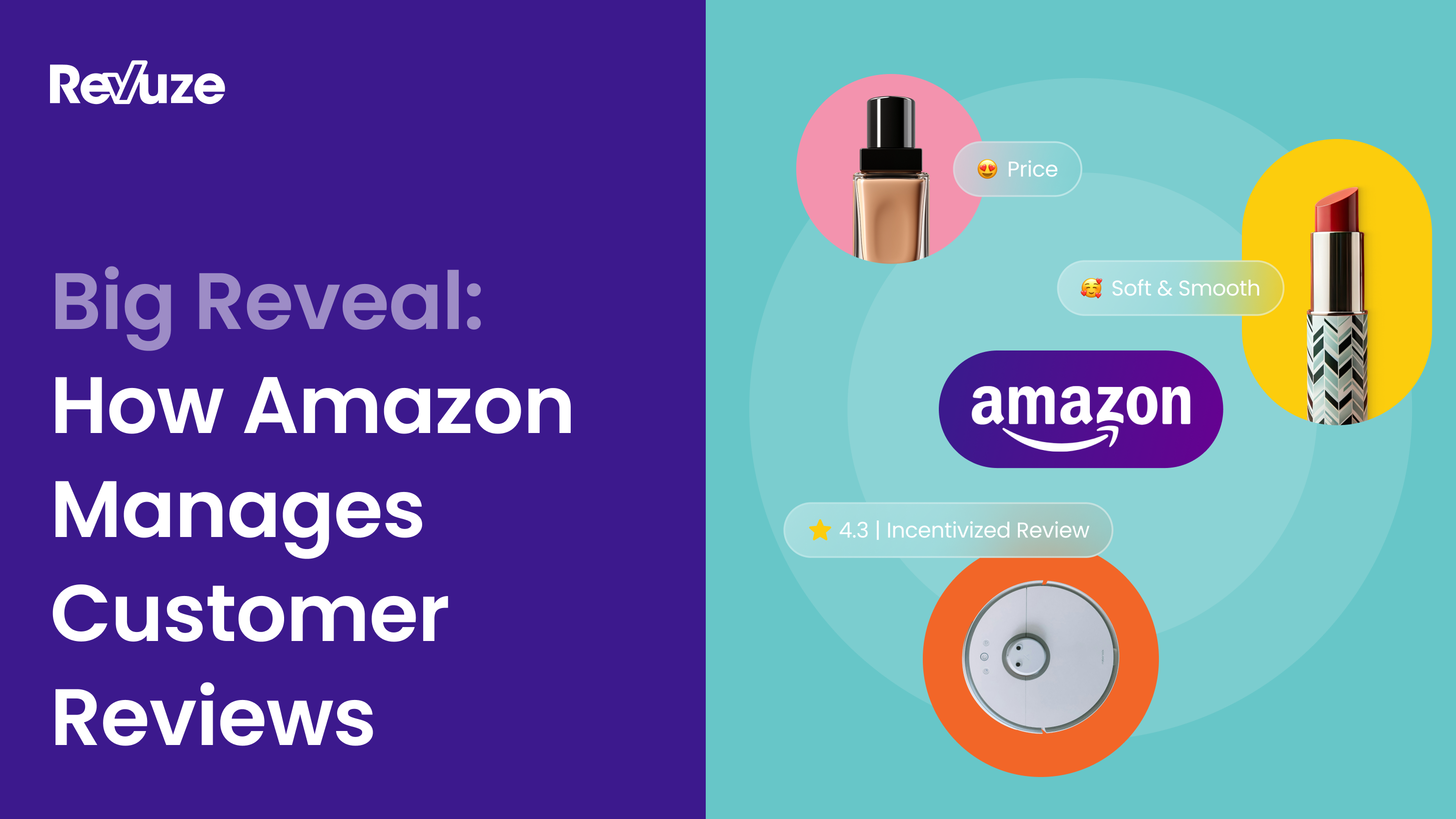
Digital transformation has become necessary for eCommerce companies looking to stay ahead of their competitors. 27% of companies feel digital transformation is now a matter of survival.
The spending on digital transformation is forecast to grow to $1.3 trillion in 2020, and the number is likely to increase to $2.3 trillion in the next three years.
Emerging Technologies in Digital Transformation
Certain technologies like AI and cloud computing offer promising benefits to ecommerce businesses. It includes personalizing the customer experience, better website management, and reduction in operational costs.
Let’s have a look at the top four emerging technologies that can help ecommerce companies in their digital transformation process.
Artificial Intelligence
AI is used in ecommerce for providing personalized product and content recommendations, fraud detection, price optimization, and customer segmentation.
Artificial intelligence is also being implemented by online retailers to provide solutions to customer queries.
Brands like L’Oréal have already started putting digital transformation as their first priority. L’Oréal saw a 55% growth in its eCommerce sales in the year 2019 as compared to 2018.
Choose an AI platform on your eCommerce website depending on what you want to achieve or provide (personalization, customer support, predict trends, etc.).
Cloud Computing
The global eCommerce cloud computing market saw a 24.6% growth in 2019 compared to the previous year.
Cloud computing enables ecommerce companies to easily scale their operations as their business grows. Besides, it is better positioned to handle sudden (seasonal) spikes in website traffic.
Another way cloud computing is changing the world of eCommerce is with speed. A powerful cloud platform can provide you with greater bandwidth, computational power, and zero downtime.
To implement cloud in your eCommerce business, choose a category (SaaS, PaaS, or IaaS), depending on the type of computing you need.
Choose SaaS if you:
- Have a limited budget and don’t want to spend (hundreds or thousands of dollars on website building).
- Want your website up and running quickly.
- Are just starting with eCommerce.
Choose PaaS if you:
- Want a custom-designed website.
- Don’t want to manage tedious tasks of development like software updates or security patches.
- Need access to your website’s code and API compatibilities so you can develop your own add-ons.
Choose IaaS if you:
- Are a major eCommerce retailer who wants complete administrative rights over the business and website.
- Are a rapidly-growing eCommerce business.
- Want a pay-as-you-use model.
Blockchain
Blockchain technology offers various benefits to eCommerce businesses. From secure transaction and data processing to reducing fraud, blockchain can be implemented throughout online retailing.
Here are three key places you can implement blockchain.
- Payments: eCommerce giants like Etsy and Rakuten allow customers to pay via bitcoins. Apart from security, the major reason blockchain is beneficial for retailers and customers is that the cost of a transaction is less than what banks or payment processors charge.
- Supply chain: With blockchain technology, you can eliminate the paper and manual work associated with international product shipping. Companies like Provenance and Codex Protocol help retailers maintain the quality of their products and reassure shoppers that they are getting what they pay for by creating detailed records.
- Business expansion: Blockchain allows you to target cryptocurrency-savvy customers, thereby expanding your eCommerce business.
Voice Commerce
Voice commerce is growing rapidly, especially because of the convenience it offers to customers.
eCommerce businesses planning for a digital transformation need to have a voice commerce strategy to stay ahead of their competitors. Make sure to create a system that captures user intent, sets the variables of the intent, and determines the next action to follow.
Your website’s UI should be able to remove the friction associated with completing a purchase. You could also create Google Home or Alexa skills to allow virtual assistant device owners to easily buy products from your website.
Implementing Digital Transformation in Your eCommerce Business
Digital transformation is all about adapting the latest technologies to meet customer expectations, embrace new trends, and manage industry disruptions.
Let’s take a look at four steps to begin the digital transformation of your eCommerce business:

1- Optimize Your Business Model
Make sure your business is ready for digital transformation. It can be done by optimizing your business model. It includes re-defining targets, corporate objectives, and business processes.
When re-defining your business model, focus on these areas:
- Consider hiring new resources to support digital transformation.
- Prioritize digital processes that help reduce operational costs and improve your services.
- Aim to increase productivity and customer retention.
- Improve your infrastructure to support digital transformation and business efficiencies.
2- Offer the Best Possible Customer Experience
The better the customer experience, the higher the sales will be. The way you manage consumer experience has an impact on the customer lifetime value. It includes customer service, social connection, and post-purchase engagement.
Therefore, eCommerce companies need to implement a CEM that allows them to track and organize all consumer interactions in one place. This means no matter the channel used by a customer to inquire, all their details will be saved in one platform.
CEM is meant to close the gap between the intended customer experience and the actual customer experience.
3- Implement Emerging Technologies
The next step is to leverage the benefits of emerging technologies (mentioned above) in your eCommerce business.
Each technology serves as the foundational blocks of a digital transformation ecosystem. Therefore, it is essential to implement all of them.
However, if you have a limited budget, you can pick the most important ones first, depending on the outcome you want. Over time, as your business grows, implement all the emerging technologies.
For example, if you want to offer personalized product recommendations or predict upcoming trends, consider implementing AI. If you wish to reduce operational costs, you should use cloud computing.
4- Measure and Optimize Your Strategies
Lastly, it is essential to measure your digital transformation strategy to determine if it is working. Tracking your performance also helps you find loopholes in the current plan, enabling you to improve it.
Here are some questions that you should ask to measure your digital transformation effectiveness:
- How is each technology supporting your eCommerce business?
- Did the overall operation cost decrease?
- Is there an increase in sales?
- How many customers are paying via cryptocurrencies? Is the number increasing over time?
- Are people using voice assistant skills? What types of queries are they making? Does it need improvement?
- Has the net promoter score increased?
Make sure to make improvements to your digital transformation strategies to see better results.
Conclusion
Digital transformation requires continuous investment in emerging technologies and infrastructure to support them. Businesses that implement digital transformation see a higher revenue growth than their peers. Is your business ready for digital transformation? If not, what are you doing to prepare yourself for the change?
 All
Articles
All
Articles Email
Analytics
Email
Analytics








 Agencies
Insights
Agencies
Insights